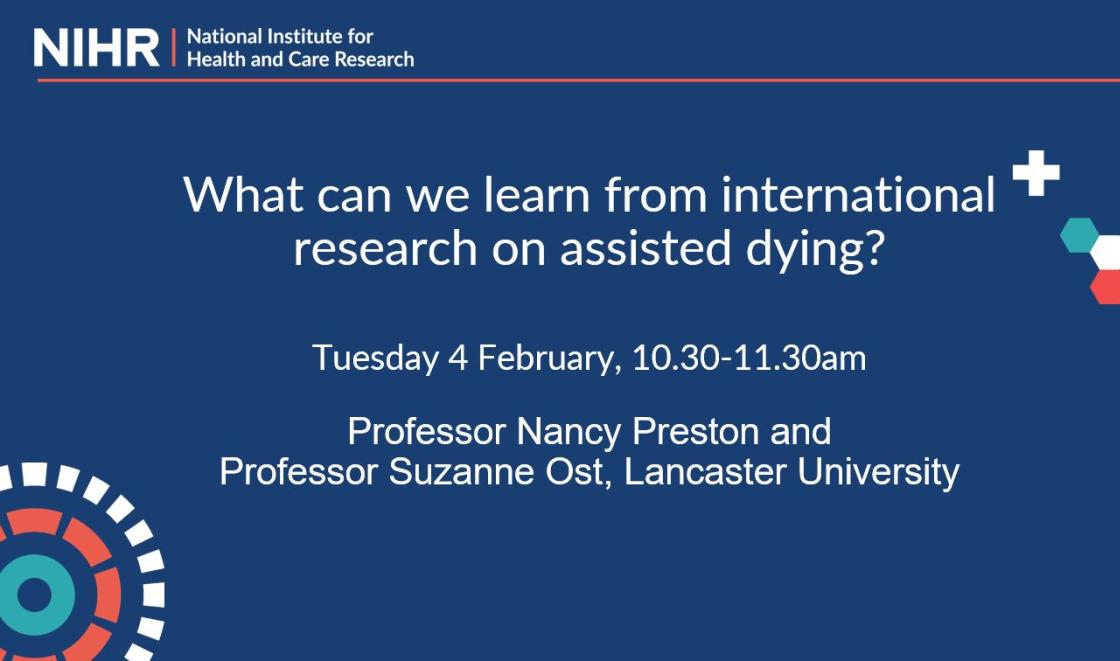In line with the BMA, the researchers propose an official body outside the NHS, such as an assisted dying panel or agency, that provides objective and accurate information to patients about the range of options open to them. The researchers also proposed a prospective and retrospective review of individual cases from a diverse multidisciplinary panel including healthcare, legal and ethical experts. Professor Ost said this would prevent loss of trust in medical professionals and better protect vulnerable individuals. The model would include bereavement support for families.
After the presentations, there was a Q&A session, with questions relating to issues of equity of access and decision making, including how to ensure patients have mental capacity to make an informed decision and to prevent and protect patients from coercion.
Palliative and end of life care webinar series
This webinar was hosted by the NIHR ARC Palliative and End of Life Care National Leadership forum as part of a series exploring topical issues in palliative care research.
The next webinar is on 14 April 2025 (11am-12pm) and is on the NIHR Palliative and End of Life Care Incubator, a new initiative to increase research capacity to drive improvements in care for patients. Speakers are Professor Candy McCabe, Professor of Clinical Research and Practice at University of West of England, Bristol and Head of Education and Research, Dorothy House Hospice Care, Bath, and Professor Christina Faull, recently retired Consultant in Palliative Medicine, Leicester.
Find out more
About the speakers
Professor Suzanne Ost is in the Law School at Lancaster University. Suzanne was Expert Adviser to the Jersey Citizens’ Jury on Assisted Dying in 2021 and the Nuffield Council’s Citizens’ Jury on Assisted Dying in the UK in 2024. She has written extensively on assisted dying, including on a demedicalised model, and her assisted dying research has been AHRC funded.
Professor Nancy Preston is Professor of the International Observatory on End of Life Care in the Faculty of Health and Medicine at Lancaster University. Nancy is a world leading researcher on the impact of assisted dying on families and healthcare workers through her international research. She gave evidence to both the Health and Social Care Committees on assisted dying for the British and Irish Governments and is an adviser for the Nuffield Council.
